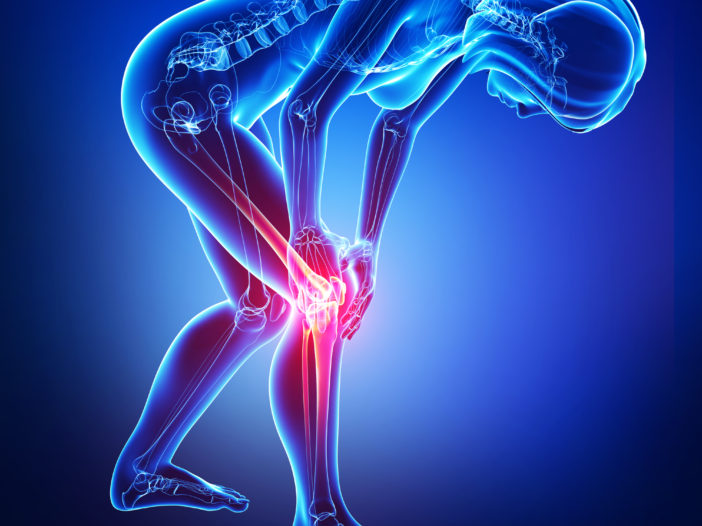
This year, the theme for Menopause Awareness Day is bone health and for good reason. Bone health and the risk of osteoporosis is often an area that gets overlooked when supporting women through the menopause.
Osteoporosis is where your bones become spongy, porous, and prone to fractures. It is often referred to as a silent disease as you often don’t know you have it. It is not evident in the same way as hot flushes, night sweats, mood swings and brain fog are. The first sign is often a broken bone. But it is very real and a big problem as 1 in 3 women over the age of 50 will suffer from an osteoporotic fracture at some point in their lives.
What is the connection between oestrogen, the menopause and the risk of osteoporosis?
As you start to head towards the menopause, oestrogen production slows down.
Oestrogen plays a key role in keeping bone density stable and maintaining bone strength. It keeps the balance between bone formation (building up) and bone breaking down (bone resorption). And so, when oestrogen levels decline, this balance is no longer kept in check and bone resorption increases. This accelerates bone loss and increases the risk of fractures.
Women start to lose 1% of bone mass each year from their mid-thirties. However, this is accelerated after the menopause, and it is thought that women can lose up to 20% of their bone density between 5 to 7 years after the menopause.
One of the best ways to understand your risk is to measure your bone mineral density by having a DEXA scan. If you are not able to get this on the NHS, private options are readily available.
Planning for supporting your bone health is super important as you start to go through the menopause. And the good news is that there are many dietary and lifestyle changes which can benefit bones and keep them strong. And it’s certainly worth putting a plan in place to support your bone health
Here are my top tips
Stay active
Exercise plays an important role in preventing many joint related problems.
One of the best ways is to find a way to include weight bearing exercises into your week. This can include a whole load of activities and doesn’t just mean a gym class involving weights. Walking, running, dancing, and playing tennis all count too. But the aim is to increase the weight bearing as and when you can. For example, you may start to walk at a faster pace with weights.
It is also important to include strength training exercises. This may involve using bands and free weights so that you can target specific muscle groups to strengthen them.
And finally, don’t forget some balance work such as yoga and Pilates. This will help to improve muscle stability and strength.
Eat foods which promote bone health and reduce the risk of osteoporosis
Vitamin D, calcium and magnesium are important nutrients for bone health.
Calcium
Calcium helps to build bone and is an important component of bone tissue. Whilst most people think of dairy when it comes to calcium, there are many other options to consider particularly if you have opted for a dairy free diet. Good sources include green leafy vegetables, soya beans, nuts and seeds and fish such as salmon and sardines.
Vitamin D
Vitamin D helps your body to absorb calcium, and most is produced in your body when exposed to sunlight. So check your levels to see where you are at. If you are in the UK, it is recommended that you supplement daily from October through to April. Of course, good food sources are helpful too and these include oily fish and eggs.
Magnesium
Magnesium is an essential mineral and is important for bone health.
This mineral is often one that you may be deficient in as your body’s ability to absorb it diminishes as you age. But it is important for building strong bones. So, make sure that you are getting good supplies by including lots of leafy greens, salmon, avocados and brown rice in your diet.
Other minerals
Many other minerals and vitamins support bone health and help to reduce fractures. These include vitamin K, boron, zinc, selenium, copper, and manganese.
It is therefore important to eat a varied diet to ensure that you are getting adequate amounts of these from the food which you eat.
Consider HRT to reduce the risk of osteoporosis
As menopausal osteoporosis is directly related to decreasing oestrogen levels, women at risk may benefit from taking HRT as this will help to maintain oestrogen levels and hormonal balance.
Don’t smoke
Research has shown that smoking increases your risk of getting osteoporosis as it stimulates bone destruction.
Limit alcohol and caffeine
Alcohol is not good for bones! It makes it more difficult for your body to use calcium properly
Include phytoestrogens in your diet daily
Phytoestrogens are plant compounds which help to regulate oestrogen levels in the body. They have a structure like the hormone oestrogen and can activate oestrogen receptors in the body. They are therefore super important for supporting bone health and research has shown that they play a role in improving bone density. Good options include flax seeds as well as edamame beans and tofu (organic soy). Try and include daily in your diet.
Although nutrition and lifestyle cannot cure osteoporosis, it can play a key role in preventing it and managing it. Whatever your age, it is never too early to start looking after your bone health. You can do so much to protect and strengthen your bones and slow down bone loss. If you would like to have a chat about diet, lifestyle and bone health then do get in touch.
And why not get started on the right diet and lifestyle for all peri and menopausal women, by downloading my free guide?

